https://www.aier.org/article/directionalism-vs-destinationism/
This interested me as I had also read that DNA science tells us 50% of the population is predisposed to being untidy. The other half is not. I found that significant in the context of home gardening. Particularly, the obsession among a certain peer group with trying to improve biodiversity. Sadly, much time is spent going after one another and much time is lost going after the common goal.
The monikers; directionalist and destinationist, have utility when considering the two tribes battling on gardening social media over the best way to improve biodiversity. The “directionalists” support any solution that is incremental to that goal.
“Destinationalists” are not so flexible. They have an ideal outcome in mind and will reject anything that does not fit their perfect vision. They want only locally native plants and the eradication of all foreign ones.
To me, the destinationists are a problem.
The planet doesn’t have the time to be picky. Biodiversity has been declining since foreigners first came to the New World. Climate change is a frightening reality and human advancement is unstoppable. Foreign plants have a massive, entrenched foothold. We need smart strategies. These battles are a hindrance to improving biodiversity. Perfection never comes quickly and it’s not even what the planet needs right now.
I’m not sure that home gardeners can cure our weakening biodiversity. But more people becoming aware of this decline will help. The more people who accept this truism the more local biodiversity will improve. That will only come through compromise, transparency and education.
It is not productive for native style gardeners to denounce other styles of gardening. It is not honest to say that only native plants can improve biodiversity. It is not true that all native plants are suitable for city gardens. Just as it is not honest for others to say that native plants are difficult to grow. It is true that some native plants can be sustainable in an inner city home garden. But not all native plants are garden-worthy for smaller city gardens. It is also true that many non-native plants provide sustenance and habitat for all sorts of wildlife.
There is ample proof that in a home garden a diverse mix of trees, shrubs, perennials, annuals, native and non-native, are beneficial to biodiversity and wildlife. This has been proved by expert gardeners who have honed their gardening skills over decades. See – Great Dixter biodiversity audit.
Being rude and dismissive is counterproductive to improving biodiversity. We shout and don’t listen. It only puts emerging and established gardeners on the defensive, or off completely. It’s wasteful of time and resources. All gardeners need to embrace native plants, whatever their chosen percentage is. This message needs to be communicated in a way that doesn’t lead to social media flame-throwing.
We need to become better directionalists. To focus on moving towards improved biodiversity, rather than pinning all our hopes on an ideal way of getting there.
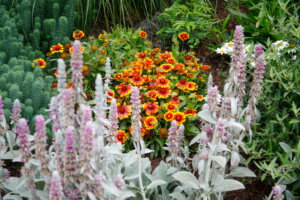
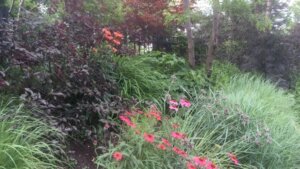
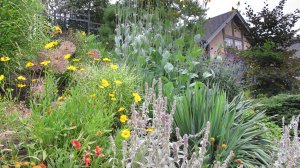
The three photos above above are from my garden in inner city Toronto.
The photos below are of the garden at Great Dixter in England.
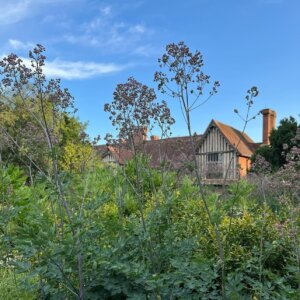
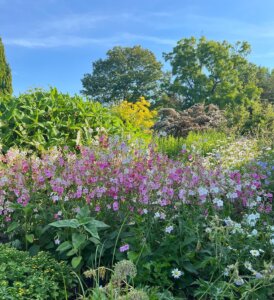
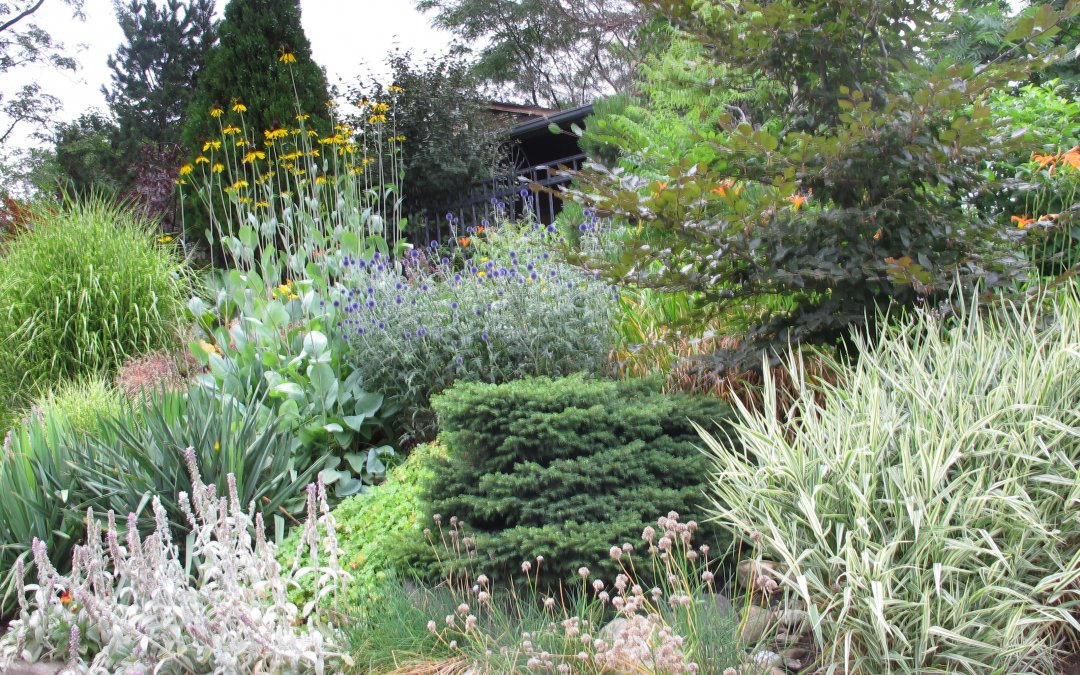
Recent Comments